Frequent persons on Slovakia's street signs
countries
168 names / 3109 streets
Pavol Országh Hviezdoslav
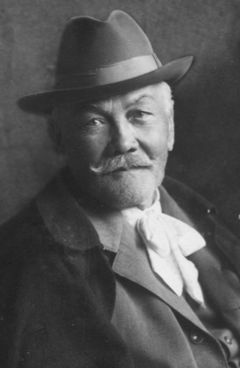 184
Pavol Országh Hviezdoslav was a Slovak poet, dramatist, translator, and for a short time, member of the Czechoslovak parliament. Originally, he wrote in a traditional style, but later became...
184
Pavol Országh Hviezdoslav was a Slovak poet, dramatist, translator, and for a short time, member of the Czechoslovak parliament. Originally, he wrote in a traditional style, but later became...
Milan Rastislav Štefánik
 140
Milan Rastislav Štefánik was a Slovak politician, diplomat, aviator and astronomer. During World War I, he served at the same time as a general in the French Army and as Minister of War for...
140
Milan Rastislav Štefánik was a Slovak politician, diplomat, aviator and astronomer. During World War I, he served at the same time as a general in the French Army and as Minister of War for...
Andrej Sládkovič
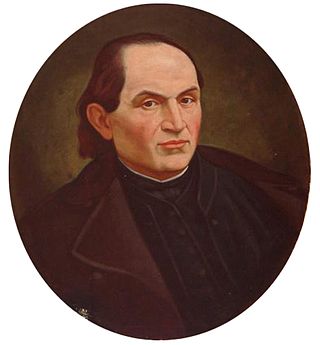 131
Andrej Sládkovič was a Slovak poet, critic, publicist, translator and Lutheran priest.
131
Andrej Sládkovič was a Slovak poet, critic, publicist, translator and Lutheran priest.
John Amos Comenius
 114
John Amos Comenius was a Moravian philosopher, pedagogue and theologian who is considered the father of modern education. He served as the last bishop of the Unity of the Brethren before becoming a...
114
John Amos Comenius was a Moravian philosopher, pedagogue and theologian who is considered the father of modern education. He served as the last bishop of the Unity of the Brethren before becoming a...
Martin Kukučín
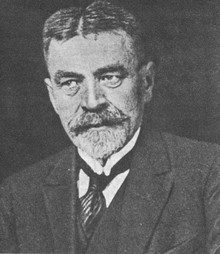 111
Martin Kukučín was a Slovak prose writer, dramatist and publicist. He was the most notable representative of Slovak literary realism, and is considered one of the founders of modern Slovak prose.
111
Martin Kukučín was a Slovak prose writer, dramatist and publicist. He was the most notable representative of Slovak literary realism, and is considered one of the founders of modern Slovak prose.
Ján Nálepka
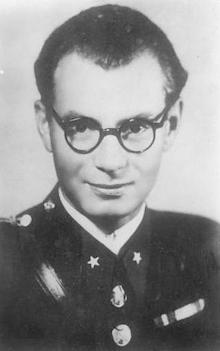 89
Ján Nálepka was a Slovak captain who organized and led an anti-fascist Slovak partisan detachment in the Soviet Union during World War II.
89
Ján Nálepka was a Slovak captain who organized and led an anti-fascist Slovak partisan detachment in the Soviet Union during World War II.
Janko Jesenský
 83
Baron Ján Jesenský was a Slovak lower nobleman of the House of Jeszenszky, poet, prose writer, translator, and politician. He was a prominent member of the Slovak national movement.
83
Baron Ján Jesenský was a Slovak lower nobleman of the House of Jeszenszky, poet, prose writer, translator, and politician. He was a prominent member of the Slovak national movement.
Janko Kráľ
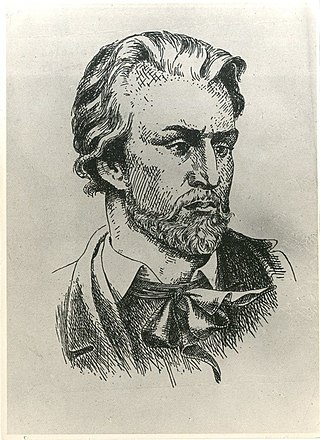 81
Janko Kráľ was one of the most significant and most radical Slovak romantic poets of the Ľudovít Štúr generation and a national activist.
81
Janko Kráľ was one of the most significant and most radical Slovak romantic poets of the Ľudovít Štúr generation and a national activist.
Ján Kollár
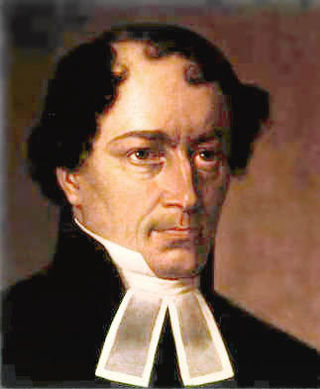 77
Ján Kollár was a Slovak writer, archaeologist, scientist, Lutheran pastor, politician, and main ideologist of Pan-Slavism.
77
Ján Kollár was a Slovak writer, archaeologist, scientist, Lutheran pastor, politician, and main ideologist of Pan-Slavism.
Jozef Miloslav Hurban
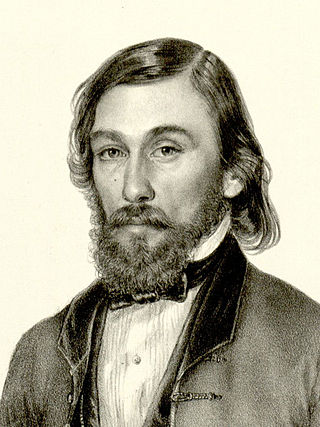 72
Jozef Miloslav Hurban was a leader of the Slovak National Council and the Slovak Uprising in 1848–1849. He was a writer, journalist, politician, organizer of Slovak cultural life, and a Lutheran...
72
Jozef Miloslav Hurban was a leader of the Slovak National Council and the Slovak Uprising in 1848–1849. He was a writer, journalist, politician, organizer of Slovak cultural life, and a Lutheran...
Peter Jilemnický
 65
Peter Jilemnický was a Slovak writer, journalist, educator and Communist politician of Czech origin.
65
Peter Jilemnický was a Slovak writer, journalist, educator and Communist politician of Czech origin.
Ján Hollý
 62
Ján Hollý was a Slovak poet and translator. He was the first greater Slovak poet to write exclusively in the newly standardized literary Slovak language. His predecessors mostly wrote in various...
62
Ján Hollý was a Slovak poet and translator. He was the first greater Slovak poet to write exclusively in the newly standardized literary Slovak language. His predecessors mostly wrote in various...
Štefan Moyses
 57
Štefan Moyses was a Slovak prelate who served as the 6th Bishop of Besztercebánya, teacher, patriot, co-founder and first Chairman of Matica slovenská.
57
Štefan Moyses was a Slovak prelate who served as the 6th Bishop of Besztercebánya, teacher, patriot, co-founder and first Chairman of Matica slovenská.
Svetozár Hurban-Vajanský
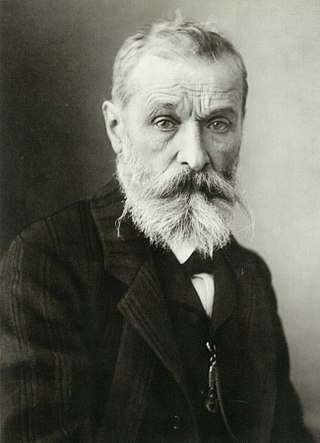 57
Svetozár Miloslav Hurban, pen name Svetozár Hurban-Vajanský was a Slovak poet, lawyer and nationalist newspaper editor who was twice imprisoned. Born in Hlboké, he was the son of Jozef Miloslav...
57
Svetozár Miloslav Hurban, pen name Svetozár Hurban-Vajanský was a Slovak poet, lawyer and nationalist newspaper editor who was twice imprisoned. Born in Hlboké, he was the son of Jozef Miloslav...
Ľudovít Štúr
 55
Ľudevít Štúr, also known as Ľudovít Velislav Štúr, was a Slovak revolutionary, politician, and writer. As a leader of the Slovak national revival in the 19th century, and the author of the Slovak...
55
Ľudevít Štúr, also known as Ľudovít Velislav Štúr, was a Slovak revolutionary, politician, and writer. As a leader of the Slovak national revival in the 19th century, and the author of the Slovak...
Samo Chalupka
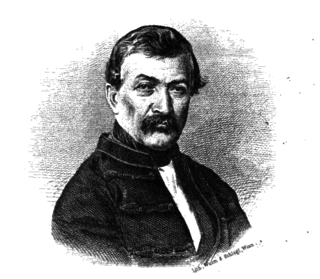 50
Samo Chalupka was a Slovak Lutheran priest and romantic poet.
50
Samo Chalupka was a Slovak Lutheran priest and romantic poet.
Martin Rázus
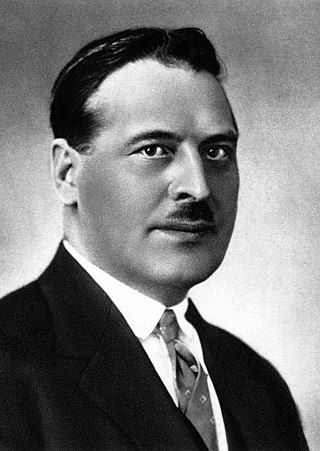 48
Martin Rázus was a Slovak poet, dramatist, writer, politician, and Lutheran priest
48
Martin Rázus was a Slovak poet, dramatist, writer, politician, and Lutheran priest
Ján Kalinčiak
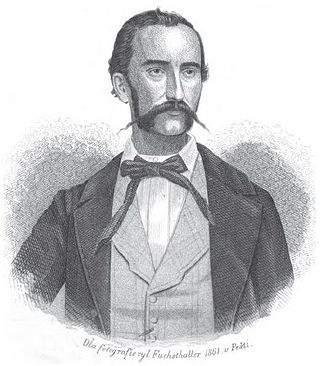 47
Ján Kalinčiak bol slovenský spisovateľ, literárny kritik a pedagóg.
47
Ján Kalinčiak bol slovenský spisovateľ, literárny kritik a pedagóg.
Andrej Hlinka
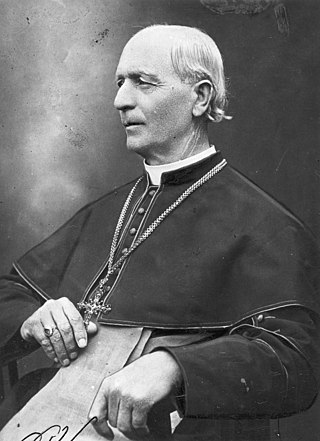 47
Andrej Hlinka was a Slovak Catholic priest, journalist, banker, politician, and one of the most important Slovak public activists in Czechoslovakia before World War II. He was the leader of the...
47
Andrej Hlinka was a Slovak Catholic priest, journalist, banker, politician, and one of the most important Slovak public activists in Czechoslovakia before World War II. He was the leader of the...
Ján Smrek
 44
Ján Smrek, vl. menom Ján Čietek, pseudonymy Ilia Volžanin, Ilja Volžanin, Ján Čietek-Smrek, Ján Smrek, Janko Smrek, Larix a i. bol slovenský básnik, spisovateľ, redaktor, publicista, vydavateľ a...
44
Ján Smrek, vl. menom Ján Čietek, pseudonymy Ilia Volžanin, Ilja Volžanin, Ján Čietek-Smrek, Ján Smrek, Janko Smrek, Larix a i. bol slovenský básnik, spisovateľ, redaktor, publicista, vydavateľ a...
Fraňo Kráľ
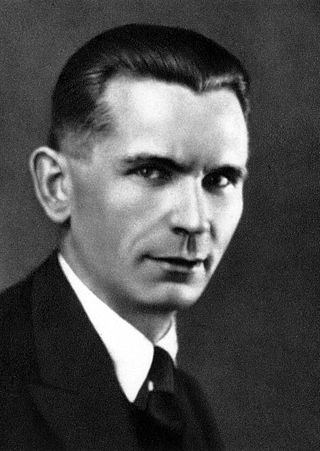 42
Fraňo Kráľ was a Slovak poet, novelist and politician who was a leading representative of Socialist realist literature in Czechoslovakia.
42
Fraňo Kráľ was a Slovak poet, novelist and politician who was a leading representative of Socialist realist literature in Czechoslovakia.
Ľudmila Podjavorinská
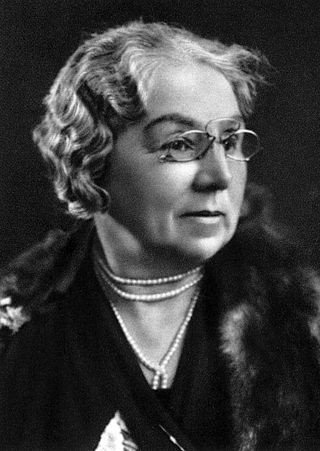 42
Ľudmila Podjavorinská was a pen name used by Ľudmila Riznerová, a Slovak writer considered to be the first important woman poet for her country but best known for her children's books. She wrote...
42
Ľudmila Podjavorinská was a pen name used by Ľudmila Riznerová, a Slovak writer considered to be the first important woman poet for her country but best known for her children's books. She wrote...
Terézia Vansová
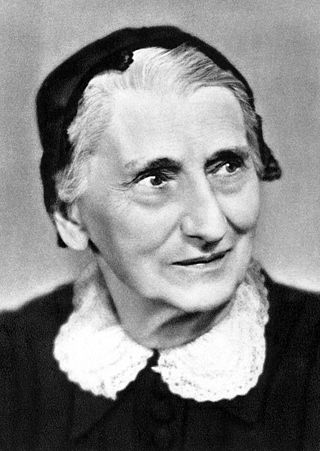 41
Terézia Zuzana Vansová née Medvecká, pseudonyms Johanka Georgiadesová, Milka Žartovnická and Nemophila (1857–1942) was a pioneering Slovak female writer and editor during the period of realism. She...
41
Terézia Zuzana Vansová née Medvecká, pseudonyms Johanka Georgiadesová, Milka Žartovnická and Nemophila (1857–1942) was a pioneering Slovak female writer and editor during the period of realism. She...
Pavel Jozef Šafárik
 41
Pavel Jozef Šafárik was an ethnic Slovak philologist, poet, literary historian, historian and ethnographer in the Kingdom of Hungary. He was one of the first scientific Slavists.
41
Pavel Jozef Šafárik was an ethnic Slovak philologist, poet, literary historian, historian and ethnographer in the Kingdom of Hungary. He was one of the first scientific Slavists.
Božena Němcová
 41
Božena Němcová was a Czech writer of the final phase of the Czech National Revival movement.
41
Božena Němcová was a Czech writer of the final phase of the Czech National Revival movement.
Karol Kuzmány
 38
Karol Kuzmány was a prominent Slovak Lutheran pastor, writer, and theologian in the Kingdom of Hungary, with a focus on philosophy and aesthetics. He studied at the University of Jena in Germany...
38
Karol Kuzmány was a prominent Slovak Lutheran pastor, writer, and theologian in the Kingdom of Hungary, with a focus on philosophy and aesthetics. He studied at the University of Jena in Germany...
Jozef Cíger-Hronský
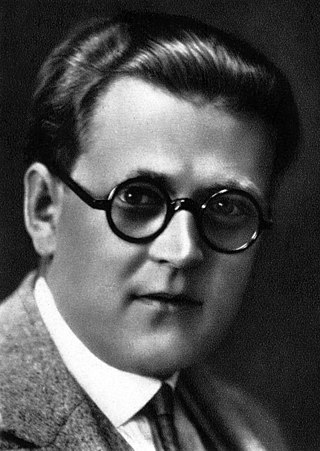 37
Jozef Cíger-Hronský was a Slovak writer, teacher, publicist, later secretary and manager of the Matica slovenská.
37
Jozef Cíger-Hronský was a Slovak writer, teacher, publicist, later secretary and manager of the Matica slovenská.
Ludvík Svoboda
 35
Ludvík Svoboda was a Czech general and politician. He fought in both World Wars, for which he was regarded as a national hero, and he later served as the president of Czechoslovakia from 1968 to 1975.
35
Ludvík Svoboda was a Czech general and politician. He fought in both World Wars, for which he was regarded as a national hero, and he later served as the president of Czechoslovakia from 1968 to 1975.
Alexander Pushkin
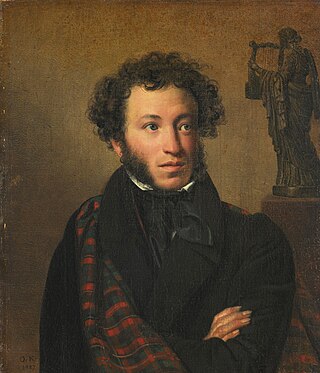 34
Alexander Sergeyevich Pushkin was a Russian poet, playwright, and novelist of the Romantic era. He is considered by many to be the greatest Russian poet, as well as the founder of modern Russian...
34
Alexander Sergeyevich Pushkin was a Russian poet, playwright, and novelist of the Romantic era. He is considered by many to be the greatest Russian poet, as well as the founder of modern Russian...
Maxim Gorky
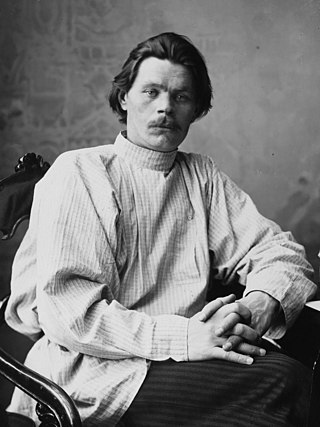 33
Alexei Maximovich Peshkov, popularly known as Maxim Gorky, was a Russian and Soviet writer and socialism proponent. He was nominated five times for the Nobel Prize in Literature. Before his success...
33
Alexei Maximovich Peshkov, popularly known as Maxim Gorky, was a Russian and Soviet writer and socialism proponent. He was nominated five times for the Nobel Prize in Literature. Before his success...
Ján Palárik
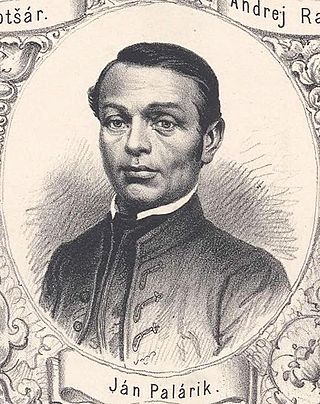 33
Ján Palárik bol slovenský katolícky kňaz, spisovateľ, dramatik, publicista a organizačný pracovník. Spolu s Jánom Chalupkom a Jonášom Záborským patrí k najvýznamnejším predstaviteľom slovenskej drámy...
33
Ján Palárik bol slovenský katolícky kňaz, spisovateľ, dramatik, publicista a organizačný pracovník. Spolu s Jánom Chalupkom a Jonášom Záborským patrí k najvýznamnejším predstaviteľom slovenskej drámy...
Jan Šverma
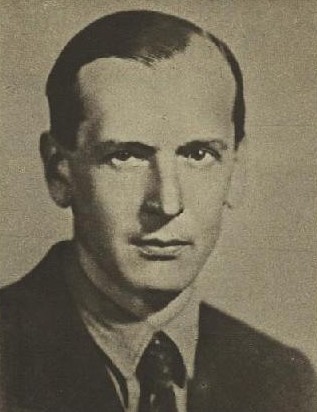 32
Jan Šverma was a Czech journalist, communist activist and resistance fighter against the Nazi-backed Slovak State. Šverma was considered a national hero in the Czechoslovak Socialist Republic.
32
Jan Šverma was a Czech journalist, communist activist and resistance fighter against the Nazi-backed Slovak State. Šverma was considered a national hero in the Czechoslovak Socialist Republic.
Andrej Kmeť
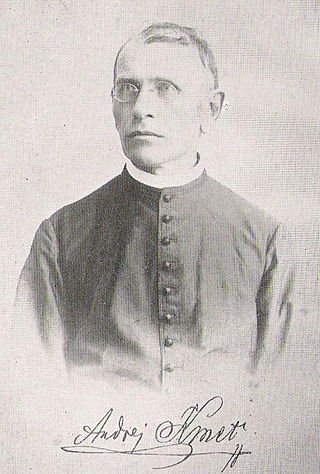 30
Andrej Kmeť was a Slovak Catholic priest, botanist, ethnographer, archaeologist, and geologist. He was a founder of the Slovak National Museum. Several species of fungi and plants have been named...
30
Andrej Kmeť was a Slovak Catholic priest, botanist, ethnographer, archaeologist, and geologist. He was a founder of the Slovak National Museum. Several species of fungi and plants have been named...
Elena Maróthy-Šoltésová
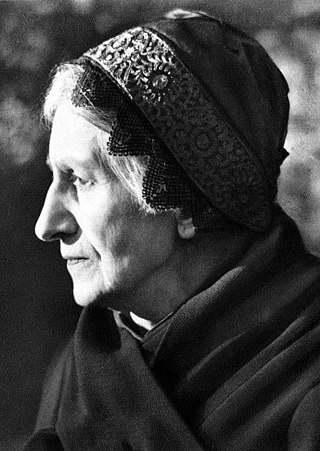 28
Elena Maróthy-Šoltésová was a Slovak writer and editor. She was also a leading figure in the women's movement in Slovakia.
28
Elena Maróthy-Šoltésová was a Slovak writer and editor. She was also a leading figure in the women's movement in Slovakia.
Laco Novomeský
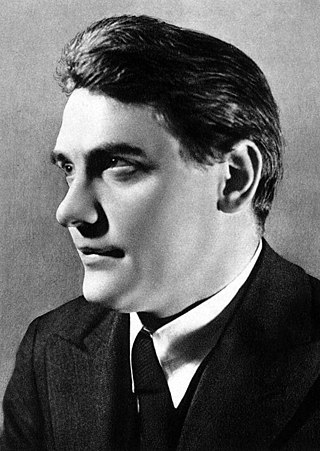 28
Laco Novomeský was a Slovak poet, writer and communist politician. Novomeský was a member of the DAV group; after The Second World War he was commissioner of education and culture of Socialist...
28
Laco Novomeský was a Slovak poet, writer and communist politician. Novomeský was a member of the DAV group; after The Second World War he was commissioner of education and culture of Socialist...
Martin Benka
 27
Martin Benka was a Slovakian painter, illustrator, art teacher and Esperantist. He is generally considered to be the founder of Modernist 20th century Slovak painting.
27
Martin Benka was a Slovakian painter, illustrator, art teacher and Esperantist. He is generally considered to be the founder of Modernist 20th century Slovak painting.
Michal Miloslav Hodža
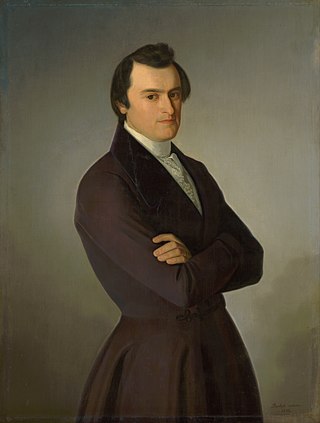 26
Michal Miloslav Hodža was a Slovak national revivalist, Lutheran pastor, poet, linguist, and representative of the Slovak national movement in 1840s as a member of "the trinity" Štúr-Hurban-Hodža. He...
26
Michal Miloslav Hodža was a Slovak national revivalist, Lutheran pastor, poet, linguist, and representative of the Slovak national movement in 1840s as a member of "the trinity" Štúr-Hurban-Hodža. He...
Jozef Murgaš
 26
Jozef Murgaš was a Slovak inventor, architect, botanist, painter and Roman Catholic priest. He contributed to radio development, which at the time was commonly known as "wireless telegraphy".
26
Jozef Murgaš was a Slovak inventor, architect, botanist, painter and Roman Catholic priest. He contributed to radio development, which at the time was commonly known as "wireless telegraphy".
Yuri Gagarin
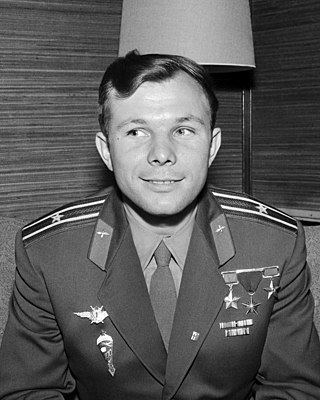 26
Yuri Alekseyevich Gagarin was a Soviet pilot and cosmonaut who, aboard the first successful crewed spaceflight, became the first human to journey into outer space. Travelling on Vostok 1, Gagarin...
26
Yuri Alekseyevich Gagarin was a Soviet pilot and cosmonaut who, aboard the first successful crewed spaceflight, became the first human to journey into outer space. Travelling on Vostok 1, Gagarin...
Juraj Fándly
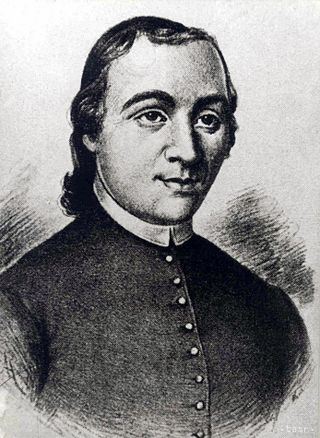 25
Juraj Fándly was a Slovak writer, Catholic priest and entomologist (bee-keeper) in the Kingdom of Hungary.
25
Juraj Fándly was a Slovak writer, Catholic priest and entomologist (bee-keeper) in the Kingdom of Hungary.
Ján Botto
 25
Ján Botto was a Slovak poet, writer of the Štúr generation and co-founder of the first Slovak gymnasium in Revúca.
25
Ján Botto was a Slovak poet, writer of the Štúr generation and co-founder of the first Slovak gymnasium in Revúca.
Mirko Nešpor
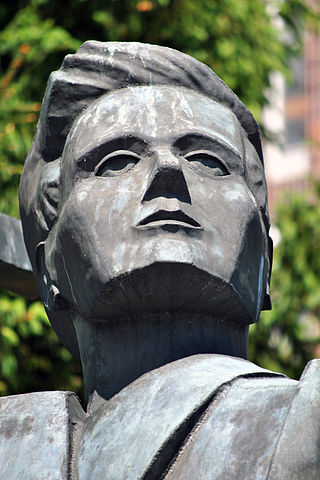 24
Mirko Nešpor bol slovenský vysokoškolák, študent Stavebnej fakulty SVŠT v Bratislave, antifašista a účastník Slovenského národného povstania.
24
Mirko Nešpor bol slovenský vysokoškolák, študent Stavebnej fakulty SVŠT v Bratislave, antifašista a účastník Slovenského národného povstania.
Vladimír Clementis
 23
Vladimír "Vlado" Clementis was a Slovak minister, politician, lawyer, publicist, literary critic, author and a prominent member of the Czechoslovak Communist Party.
23
Vladimír "Vlado" Clementis was a Slovak minister, politician, lawyer, publicist, literary critic, author and a prominent member of the Czechoslovak Communist Party.
Rastislav of Moravia
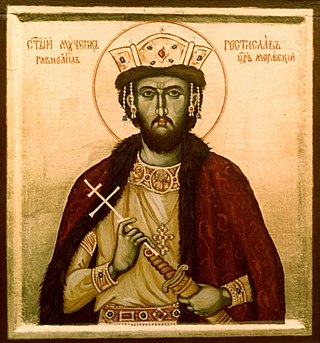 22
Rastislav or Rostislav was the second known ruler of Moravia (846–870). Although he started his reign as vassal to Louis the German, the king of East Francia, he consolidated his rule to the extent...
22
Rastislav or Rostislav was the second known ruler of Moravia (846–870). Although he started his reign as vassal to Louis the German, the king of East Francia, he consolidated his rule to the extent...
Cyril and Methodius
 22
Cyril and Methodius (815–885) were brothers, Byzantine Christian theologians and missionaries. For their work evangelizing the Slavs, they are known as the "Apostles to the Slavs".
22
Cyril and Methodius (815–885) were brothers, Byzantine Christian theologians and missionaries. For their work evangelizing the Slavs, they are known as the "Apostles to the Slavs".
Pavol Dobšinský
 22
Pavol Dobšinský was a Slovak collector of folklore and writer belonging to the period of Romanticism and the Štúr generation. He is perhaps best known for creating the largest and most complete...
22
Pavol Dobšinský was a Slovak collector of folklore and writer belonging to the period of Romanticism and the Štúr generation. He is perhaps best known for creating the largest and most complete...
Leo Tolstoy
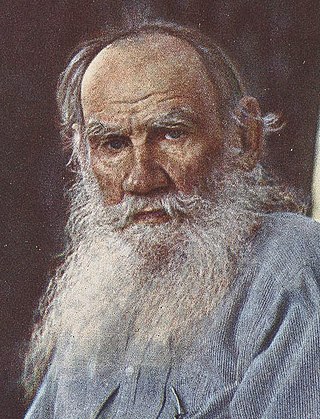 21
Count Lev Nikolayevich Tolstoy, usually referred to in English as Leo Tolstoy, was a Russian writer. He is regarded as one of the greatest and most influential authors of all time. He received...
21
Count Lev Nikolayevich Tolstoy, usually referred to in English as Leo Tolstoy, was a Russian writer. He is regarded as one of the greatest and most influential authors of all time. He received...
Ivan Krasko
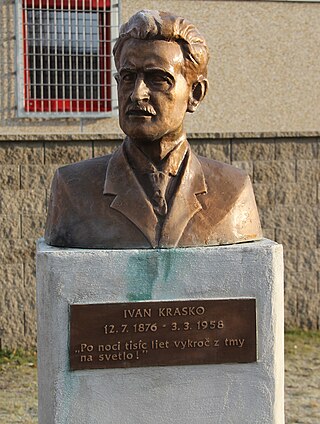 20
Ivan Krasko was a Slovak poet, translator and representative of modernism in Slovakia.
20
Ivan Krasko was a Slovak poet, translator and representative of modernism in Slovakia.
August Horislav Škultéty
 19
August Horislav Škultéty was a Slovak writer, pedagogue, and ethnographer, and the director of the first Slovak high school in Revúca.
19
August Horislav Škultéty was a Slovak writer, pedagogue, and ethnographer, and the director of the first Slovak high school in Revúca.
Samo Tomášik
Timrava
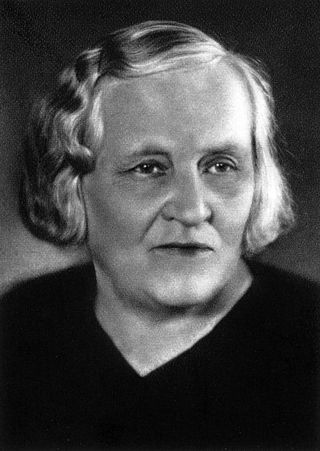 18
Božena Slančíková, better known by the pen name Timrava, was a Slovak novelist, short story writer and playwright. She also wrote under the name "Aunt Polichna". "Timrava" was taken from the name of...
18
Božena Slančíková, better known by the pen name Timrava, was a Slovak novelist, short story writer and playwright. She also wrote under the name "Aunt Polichna". "Timrava" was taken from the name of...
Jonáš Záborský
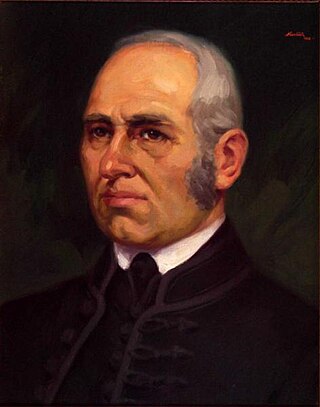 17
Jonáš Záborský was a Slovak lower nobleman and writer. He was an author of tales, epigrams, allegorical-philosophical poems, satirical poems, historical dramas, comedies and stories.
17
Jonáš Záborský was a Slovak lower nobleman and writer. He was an author of tales, epigrams, allegorical-philosophical poems, satirical poems, historical dramas, comedies and stories.
Anton Bernolák
 17
Anton Bernolák; Hungarian: Bernolák Antal; 3 October 1762 – 15 January 1813) was a Slovak linguist and Catholic priest, and the author of the first Slovak language standard.
17
Anton Bernolák; Hungarian: Bernolák Antal; 3 October 1762 – 15 January 1813) was a Slovak linguist and Catholic priest, and the author of the first Slovak language standard.
Alexander Dubček
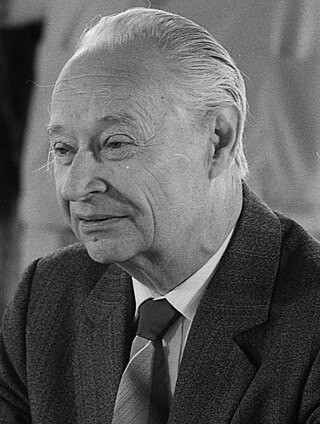 17
Alexander Dubček was a Slovak statesman who served as the First Secretary of the Presidium of the Central Committee of the Communist Party of Czechoslovakia (KSČ) from January 1968 to April 1969 and...
17
Alexander Dubček was a Slovak statesman who served as the First Secretary of the Presidium of the Central Committee of the Communist Party of Czechoslovakia (KSČ) from January 1968 to April 1969 and...
Janko Matúška
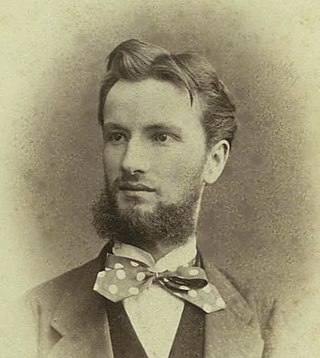 17
Janko Matúška was an ethnic Slovak poet, activist, occasional playwright, and clerk of the court in the Kingdom of Hungary. He is best known as the author of the Slovak national anthem, "Nad Tatrou...
17
Janko Matúška was an ethnic Slovak poet, activist, occasional playwright, and clerk of the court in the Kingdom of Hungary. He is best known as the author of the Slovak national anthem, "Nad Tatrou...
Jozef Gregor-Tajovský
 16
Jozef Gregor, better known as Jozef Gregor-Tajovský, was a Slovak novelist, playwright, poet, teacher, and politician.
As a novelist, he is considered to be a leading figure of the second wave of...
16
Jozef Gregor, better known as Jozef Gregor-Tajovský, was a Slovak novelist, playwright, poet, teacher, and politician.
As a novelist, he is considered to be a leading figure of the second wave of...
Ján Francisci-Rimavský
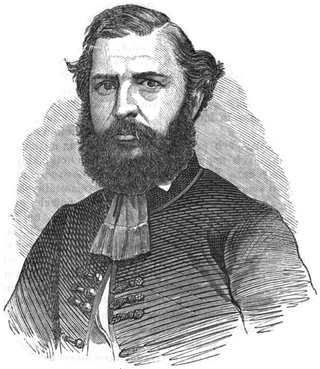 16
Ján Samuel Francisci-Rimavský was a Slovak poet, novelist, translator, journalist and politician, who collaborated with the nationalist leader, Ľudovít Štúr nad philosophical-legal theorist and...
16
Ján Samuel Francisci-Rimavský was a Slovak poet, novelist, translator, journalist and politician, who collaborated with the nationalist leader, Ľudovít Štúr nad philosophical-legal theorist and...
Sándor Petőfi
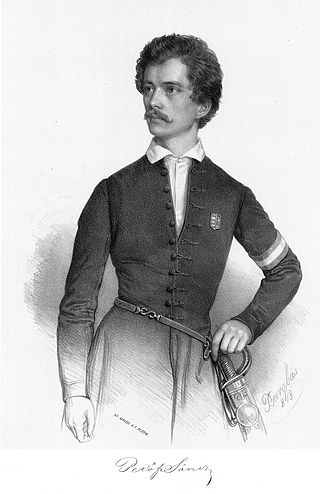 16
Sándor Petőfi was a Hungarian poet and liberal revolutionary. He is considered Hungary's national poet, and was one of the key figures of the Hungarian Revolution of 1848. He is the author of the...
16
Sándor Petőfi was a Hungarian poet and liberal revolutionary. He is considered Hungary's national poet, and was one of the key figures of the Hungarian Revolution of 1848. He is the author of the...
Matthias Bel
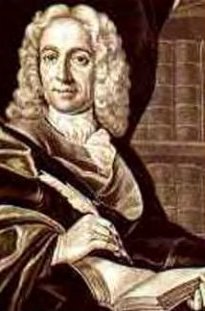 14
Matthias Bel or Matthias Bél was a Lutheran pastor and polymath from the Kingdom of Hungary. Bel was active in the fields of pedagogy, philosophy, philology, history, and theoretical theology; he was...
14
Matthias Bel or Matthias Bél was a Lutheran pastor and polymath from the Kingdom of Hungary. Bel was active in the fields of pedagogy, philosophy, philology, history, and theoretical theology; he was...
Gorazd Pavlík
 14
Gorazd of Prague, given name Matěj Pavlík, was the hierarch of the revived Orthodox Church in Czechoslovakia after World War I. During World War II, having provided refuge for the assassins of...
14
Gorazd of Prague, given name Matěj Pavlík, was the hierarch of the revived Orthodox Church in Czechoslovakia after World War I. During World War II, having provided refuge for the assassins of...
Otakar Jaroš
 13
Otakar Jaroš was a Czech officer in the Czechoslovak forces in the Soviet Union. He was killed in the Battle of Sokolovo and became the first member of a foreign army decorated with the highest...
13
Otakar Jaroš was a Czech officer in the Czechoslovak forces in the Soviet Union. He was killed in the Battle of Sokolovo and became the first member of a foreign army decorated with the highest...
Marek Čulen
 13
Marek Čulen bol slovenský politik a štátnik, aktívny účastník protifašistického odboja počas 2. svetovej vojny, poslanec povstaleckej Slovenskej národnej rady.
13
Marek Čulen bol slovenský politik a štátnik, aktívny účastník protifašistického odboja počas 2. svetovej vojny, poslanec povstaleckej Slovenskej národnej rady.
Janko Alexy
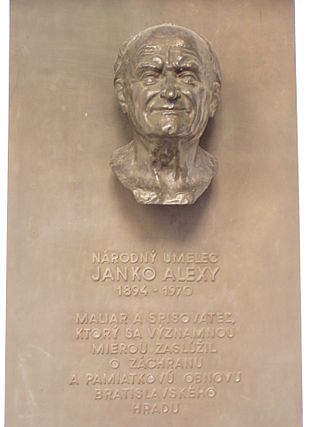 12
Janko Alexy was a famous painter, writer, and publicist of Slovak origin. He is generally recognized as one of key personalities in the beginning of Modern Slovak Art.
12
Janko Alexy was a famous painter, writer, and publicist of Slovak origin. He is generally recognized as one of key personalities in the beginning of Modern Slovak Art.
Pope John Paul II
 12
Pope John Paul II was head of the Catholic Church and sovereign of the Vatican City State from 1978 until his death in 2005.
12
Pope John Paul II was head of the Catholic Church and sovereign of the Vatican City State from 1978 until his death in 2005.
Tomáš Masaryk
 11
Tomáš Garrigue Masaryk was a Czechoslovak statesman, progressive political activist and philosopher who served as the first president of Czechoslovakia from 1918 to 1935. He is regarded as the...
11
Tomáš Garrigue Masaryk was a Czechoslovak statesman, progressive political activist and philosopher who served as the first president of Czechoslovakia from 1918 to 1935. He is regarded as the...
Rudolf Jašík
 11
Rudolf Jašík bol slovenský prozaik, básnik a publicista.
11
Rudolf Jašík bol slovenský prozaik, básnik a publicista.
Miloš Alexander Bazovský
 10
Miloš Alexander Bazovský was an eminent Slovak painter, often ranked among the most prominent figures of 20th-century art from Slovakia.
10
Miloš Alexander Bazovský was an eminent Slovak painter, often ranked among the most prominent figures of 20th-century art from Slovakia.
Ľudovít Fulla
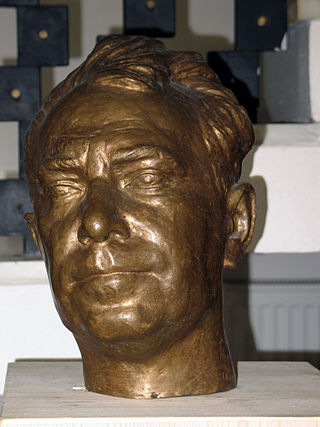 9
Ľudovít Fulla was a Slovak painter, graphic artist, illustrator, stage designer and art teacher. He is considered one of the most important figures of Slovak creative art in the 20th century.
9
Ľudovít Fulla was a Slovak painter, graphic artist, illustrator, stage designer and art teacher. He is considered one of the most important figures of Slovak creative art in the 20th century.
Lajos Kossuth
 9
Lajos Kossuth de Udvard et Kossuthfalva was a Hungarian nobleman, lawyer, journalist, politician, statesman and governor-president of the Kingdom of Hungary during the revolution of 1848–1849.
9
Lajos Kossuth de Udvard et Kossuthfalva was a Hungarian nobleman, lawyer, journalist, politician, statesman and governor-president of the Kingdom of Hungary during the revolution of 1848–1849.
Ivan Stodola
 9
Ivan Stodola was Slovak dramatist and writer.
9
Ivan Stodola was Slovak dramatist and writer.
Béla Bartók
 9
Béla Viktor János Bartók was a Hungarian composer, pianist and ethnomusicologist. He is considered one of the most important composers of the 20th century; he and Franz Liszt are regarded as...
9
Béla Viktor János Bartók was a Hungarian composer, pianist and ethnomusicologist. He is considered one of the most important composers of the 20th century; he and Franz Liszt are regarded as...
Ľudovít Kukorelli
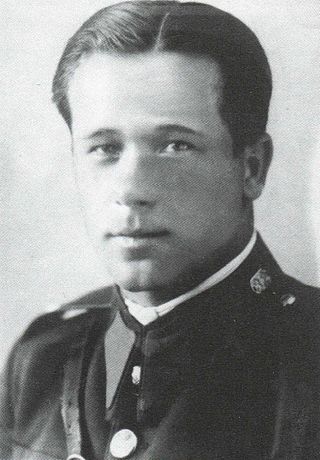 9
Ľudovít Kukorelli bol slovenský dôstojník letectva, významný organizátor a veliteľ partizánskych jednotiek na východnom Slovensku počas druhej svetovej vojny.
9
Ľudovít Kukorelli bol slovenský dôstojník letectva, významný organizátor a veliteľ partizánskych jednotiek na východnom Slovensku počas druhej svetovej vojny.
Milo Urban
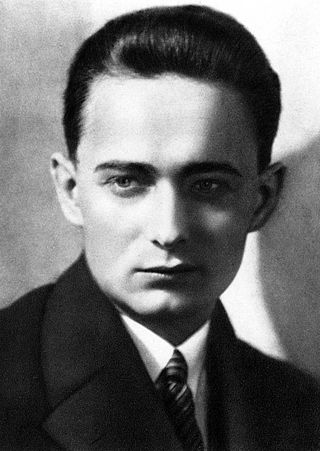 9
Milo Urban was Slovak writer, translator, journalist and important representatives of modern Slovak literature. Urban is controversial figure because he served as an editor-in-chief of an official...
9
Milo Urban was Slovak writer, translator, journalist and important representatives of modern Slovak literature. Urban is controversial figure because he served as an editor-in-chief of an official...
Štefan Banič
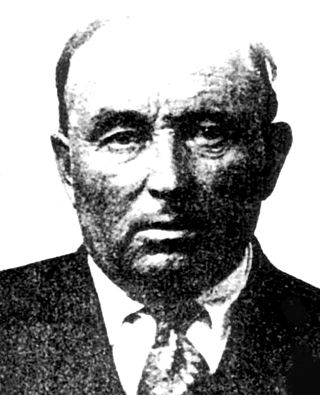 9
Štefan Banič was a Slovak inventor who patented an early parachute design.
9
Štefan Banič was a Slovak inventor who patented an early parachute design.
Fábry Zoltán (író)
 8
Fábry Zoltán felvidéki protestáns pap- és írástudó családból származó, első világháborús rokkant hadnagy, baloldali író, közíró, kritikus. Munkásságának etikai irányát az antimilitarizmus, az...
8
Fábry Zoltán felvidéki protestáns pap- és írástudó családból származó, első világháborús rokkant hadnagy, baloldali író, közíró, kritikus. Munkásságának etikai irányát az antimilitarizmus, az...
Dušan Jurkovič
 8
Dušan Samo Jurkovič was a Slovak architect, furniture designer, artist and ethnographer. One of the best-known promoters of Slovak art in 20th century Czechoslovakia, he is remembered mostly due to...
8
Dušan Samo Jurkovič was a Slovak architect, furniture designer, artist and ethnographer. One of the best-known promoters of Slovak art in 20th century Czechoslovakia, he is remembered mostly due to...
Saint Stephen
 8
Stephen is traditionally venerated as the protomartyr or first martyr of Christianity. According to the Acts of the Apostles, he was a deacon in the early church at Jerusalem who angered members of...
8
Stephen is traditionally venerated as the protomartyr or first martyr of Christianity. According to the Acts of the Apostles, he was a deacon in the early church at Jerusalem who angered members of...
Michael (archangel)
 7
Michael, also called Saint Michael the Archangel, Archangel Michael and Saint Michael the Taxiarch is an archangel in Judaism, Christianity, Islam, and the Baha'i faith. The earliest surviving...
7
Michael, also called Saint Michael the Archangel, Archangel Michael and Saint Michael the Taxiarch is an archangel in Judaism, Christianity, Islam, and the Baha'i faith. The earliest surviving...
Janko Borodáč
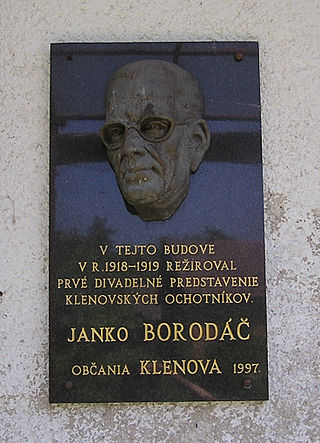 7
Janko Borodáč je jedným zo zakladateľov a budovateľov slovenského profesionálneho divadla. Bol divadelným režisérom, hercom, pedagógom a prekladateľom.
7
Janko Borodáč je jedným zo zakladateľov a budovateľov slovenského profesionálneho divadla. Bol divadelným režisérom, hercom, pedagógom a prekladateľom.
Nikolai Gogol
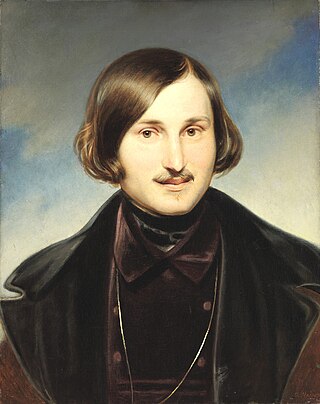 7
Nikolai Vasilyevich Gogol was a Russian novelist, short story writer, and playwright of Ukrainian origin.
7
Nikolai Vasilyevich Gogol was a Russian novelist, short story writer, and playwright of Ukrainian origin.
Kálmán Mikszáth
 7
Kálmán Mikszáth de Kiscsoltó was a widely reputed Hungarian novelist, journalist, and politician. His work remains in print in Hungarian and still appears from time to time in other languages.
7
Kálmán Mikszáth de Kiscsoltó was a widely reputed Hungarian novelist, journalist, and politician. His work remains in print in Hungarian and still appears from time to time in other languages.
James the Great
 7
James the Great was one of the Twelve Apostles of Jesus. According to the New Testament, he was the second of the apostles to die, and the first to be martyred. Saint James is the patron saint of...
7
James the Great was one of the Twelve Apostles of Jesus. According to the New Testament, he was the second of the apostles to die, and the first to be martyred. Saint James is the patron saint of...
Zdeněk Nejedlý
 6
Zdeněk Nejedlý was a Czech musicologist, historian, music critic, author, and politician whose ideas dominated the cultural life of what is now the Czech Republic for most of the twentieth century....
6
Zdeněk Nejedlý was a Czech musicologist, historian, music critic, author, and politician whose ideas dominated the cultural life of what is now the Czech Republic for most of the twentieth century....
Jozef Hanula
 6
Jozef Hanula bol slovenský maliar a pedagóg. Vrcholnou tvorbou sa hlásil k programu kritického realizmu.
6
Jozef Hanula bol slovenský maliar a pedagóg. Vrcholnou tvorbou sa hlásil k programu kritického realizmu.
Juraj Langsfeld
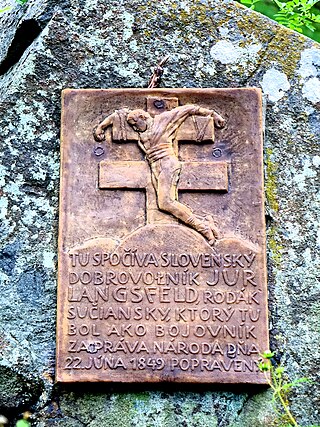 6
Juraj Langsfeld, alebo Ďurko Langsfeld bol slovenský národovec, študoval na evanjelickom kolégiu v Kežmarku a Prešove. Učiteľ vo vtedajšom Turčianskom Svätom Martine a od januára 1849 dobrovoľnícky...
6
Juraj Langsfeld, alebo Ďurko Langsfeld bol slovenský národovec, študoval na evanjelickom kolégiu v Kežmarku a Prešove. Učiteľ vo vtedajšom Turčianskom Svätom Martine a od januára 1849 dobrovoľnícky...
Saint Florian
 6
Florian was a Christian holy man and the patron saint of chimney sweeps; soapmakers, and firefighters. His feast day is 4 May. Florian is also the patron saint of Poland, the city of Linz, Austria,...
6
Florian was a Christian holy man and the patron saint of chimney sweeps; soapmakers, and firefighters. His feast day is 4 May. Florian is also the patron saint of Poland, the city of Linz, Austria,...
Saint Anne
 6
According to apocrypha, as well as Christian and Islamic tradition, Saint Anne was the mother of Mary, the wife of Joachim and the maternal grandmother of Jesus. Mary's mother is not named in the...
6
According to apocrypha, as well as Christian and Islamic tradition, Saint Anne was the mother of Mary, the wife of Joachim and the maternal grandmother of Jesus. Mary's mother is not named in the...
Mikhail Kutuzov
 5
Prince Mikhail Illarionovich Golenishchev-Kutuzov-Smolensky was a Field Marshal of the Russian Empire. He served as a military officer and a diplomat under the reign of three Romanov monarchs:...
5
Prince Mikhail Illarionovich Golenishchev-Kutuzov-Smolensky was a Field Marshal of the Russian Empire. He served as a military officer and a diplomat under the reign of three Romanov monarchs:...
Cyprián Majerník
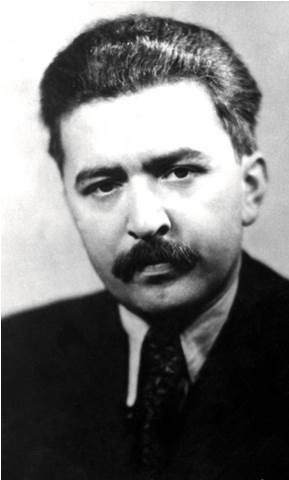 5
Cyprián Majerník was a Slovak painter who worked in Prague; associated with the "Generation of 1909".
5
Cyprián Majerník was a Slovak painter who worked in Prague; associated with the "Generation of 1909".
Saint Nicholas
 5
Saint Nicholas of Myra, also known as Nicholas of Bari, was an early Christian bishop of Greek descent from the maritime city of Patara in Anatolia during the time of the Roman Empire. Because of the...
5
Saint Nicholas of Myra, also known as Nicholas of Bari, was an early Christian bishop of Greek descent from the maritime city of Patara in Anatolia during the time of the Roman Empire. Because of the...
Rudolf Dilong
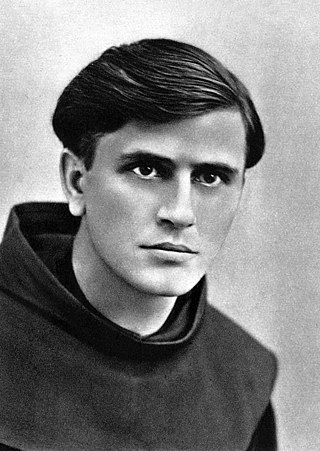 5
Rudolf Dilong bol slovenský básnik katolíckej moderny, katolícky kňaz, člen františkánskeho rádu.
5
Rudolf Dilong bol slovenský básnik katolíckej moderny, katolícky kňaz, člen františkánskeho rádu.
Ján Kostra
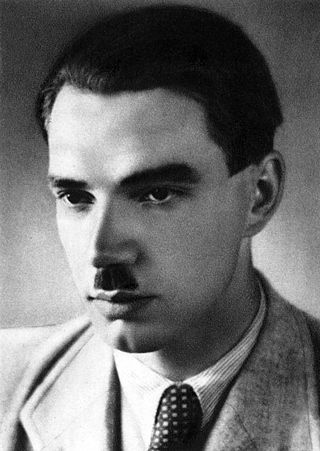 5
Ján Kostra bol slovenský básnik, maliar, esejista, prekladateľ a autor literatúry pre deti a mládež. Bol manželom spisovateliek Kristy Bendovej a Hany Ponickej.
5
Ján Kostra bol slovenský básnik, maliar, esejista, prekladateľ a autor literatúry pre deti a mládež. Bol manželom spisovateliek Kristy Bendovej a Hany Ponickej.
Alexander Suvorov
 5
Count Alexander Vasilyevich Suvorov-Rymniksky, Prince of Italy, was a Russian general and military theorist in the service of the Russian Empire.
5
Count Alexander Vasilyevich Suvorov-Rymniksky, Prince of Italy, was a Russian general and military theorist in the service of the Russian Empire.
Ivan Olbracht
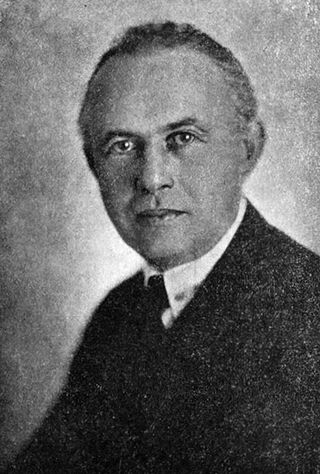 4
Ivan Olbracht, born Kamil Zeman was a Czech censor, writer, journalist and translator of German prose.
4
Ivan Olbracht, born Kamil Zeman was a Czech censor, writer, journalist and translator of German prose.
Thomas Edison
 4
Thomas Alva Edison was an American inventor and businessman. He developed many devices in fields such as electric power generation, mass communication, sound recording, and motion pictures. These...
4
Thomas Alva Edison was an American inventor and businessman. He developed many devices in fields such as electric power generation, mass communication, sound recording, and motion pictures. These...
Ján Vojtaššák
 4
Ján Vojtaššák was a Roman Catholic bishop of the Diocese of Spiš.
He was imprisoned by the communist regime in Czechoslovakia in 1951. A case for his beatification is ongoing but has attracted...
4
Ján Vojtaššák was a Roman Catholic bishop of the Diocese of Spiš.
He was imprisoned by the communist regime in Czechoslovakia in 1951. A case for his beatification is ongoing but has attracted...
Mikuláš Dohnány
 4
Mikuláš Dohnány z Dohnian bol slovenský básnik, redaktor, polyglot, historik, účastník dobrovoľníckych výprav, štúrovec.
4
Mikuláš Dohnány z Dohnian bol slovenský básnik, redaktor, polyglot, historik, účastník dobrovoľníckych výprav, štúrovec.
Imre Madách
 4
Imre Madách de Sztregova et Kelecsény was a Hungarian aristocrat, writer, poet, lawyer and politician. His major work is The Tragedy of Man. It is a dramatic poem approximately 4000 lines long, which...
4
Imre Madách de Sztregova et Kelecsény was a Hungarian aristocrat, writer, poet, lawyer and politician. His major work is The Tragedy of Man. It is a dramatic poem approximately 4000 lines long, which...
Urbanek Ferenc
 4
Urbanek Ferenc, Franz Urbanek apát-kanonok.
4
Urbanek Ferenc, Franz Urbanek apát-kanonok.
Zoltán Kodály
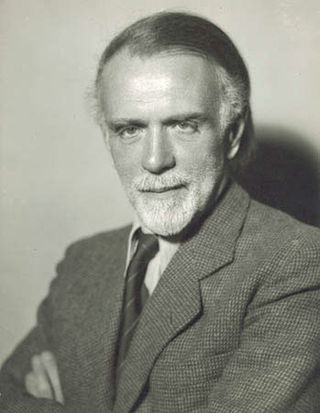 4
Zoltán Kodály was a Hungarian composer, ethnomusicologist, music pedagogue, linguist, and philosopher. He is well known internationally as the creator of the Kodály method of music education.
4
Zoltán Kodály was a Hungarian composer, ethnomusicologist, music pedagogue, linguist, and philosopher. He is well known internationally as the creator of the Kodály method of music education.
Emil Boleslav Lukáč
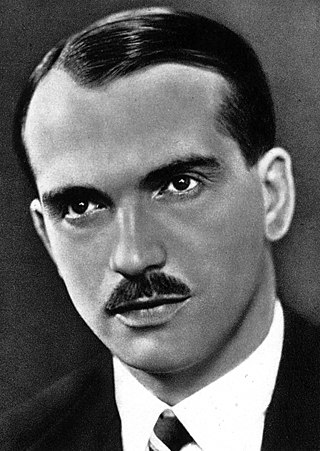 4
Emil Boleslav Lukáč bol slovenský básnik, prekladateľ, evanjelický kňaz a učiteľ; výrazný predstaviteľ básnického neosymbolizmu.
4
Emil Boleslav Lukáč bol slovenský básnik, prekladateľ, evanjelický kňaz a učiteľ; výrazný predstaviteľ básnického neosymbolizmu.
Attila József
 4
Attila József was one of the most famous Hungarian poets of the 20th century. Generally not recognized during his lifetime, József was hailed during the communist era of the 1950s as Hungary's great...
4
Attila József was one of the most famous Hungarian poets of the 20th century. Generally not recognized during his lifetime, József was hailed during the communist era of the 1950s as Hungary's great...
Jozef Gabčík
 4
Jozef Gabčík was a Slovak soldier in the Czechoslovak Army involved in the Operation Anthropoid, the assassination of acting Reichsprotektor (Realm-Protector) of Protectorate of Bohemia and Moravia,...
4
Jozef Gabčík was a Slovak soldier in the Czechoslovak Army involved in the Operation Anthropoid, the assassination of acting Reichsprotektor (Realm-Protector) of Protectorate of Bohemia and Moravia,...
Jozef Kroner
 3
Jozef Kroner was a Slovak actor. His brother Ľudovít Kroner, daughter Zuzana Kronerová, and wife Terézia Hurbanová-Kronerová were also actors. He starred in the Oscar-winning film The Shop on Main...
3
Jozef Kroner was a Slovak actor. His brother Ľudovít Kroner, daughter Zuzana Kronerová, and wife Terézia Hurbanová-Kronerová were also actors. He starred in the Oscar-winning film The Shop on Main...
Rudolf Viest
 3
Rudolf Viest was a Slovak military leader, member of the Czechoslovak government in exile, member of the Slovak National Council and the commander of the 1st Czechoslovak army during the Slovak...
3
Rudolf Viest was a Slovak military leader, member of the Czechoslovak government in exile, member of the Slovak National Council and the commander of the 1st Czechoslovak army during the Slovak...
Jozef Ignác Bajza
 3
Jozef Ignác Bajza was an ethnically Slovak writer, satirist and Catholic priest in the Kingdom of Hungary.
3
Jozef Ignác Bajza was an ethnically Slovak writer, satirist and Catholic priest in the Kingdom of Hungary.
Juraj Holček
 3
Juraj Holček bol slovenský rímskokatolícky kňaz, národnokultúrny pracovník, včelár, príslušník slovenského národného hnutia. V roku 1849 člen deputácie Slovákov vo Viedni, roku 1861 memorandového...
3
Juraj Holček bol slovenský rímskokatolícky kňaz, národnokultúrny pracovník, včelár, príslušník slovenského národného hnutia. V roku 1849 člen deputácie Slovákov vo Viedni, roku 1861 memorandového...
Nikola Tesla
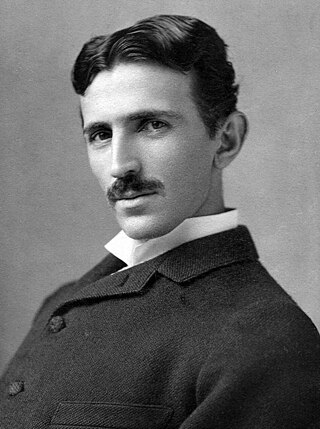 3
Nikola Tesla was a Serbian-American inventor, electrical engineer, mechanical engineer, and futurist. He is known for his contributions to the design of the modern alternating current (AC)...
3
Nikola Tesla was a Serbian-American inventor, electrical engineer, mechanical engineer, and futurist. He is known for his contributions to the design of the modern alternating current (AC)...
Eugen Suchoň
 3
Eugen Suchoň was one of the most important Slovak composers of the 20th century.
3
Eugen Suchoň was one of the most important Slovak composers of the 20th century.
Nicolaus Copernicus
 3
Nicolaus Copernicus was a Renaissance polymath, active as a mathematician, astronomer, and Catholic canon, who formulated a model of the universe that placed the Sun rather than Earth at its center....
3
Nicolaus Copernicus was a Renaissance polymath, active as a mathematician, astronomer, and Catholic canon, who formulated a model of the universe that placed the Sun rather than Earth at its center....
Mikhail Lomonosov
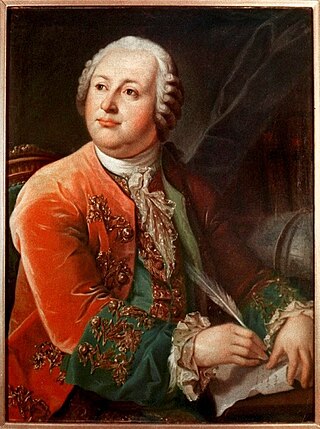 3
Mikhail Vasilyevich Lomonosov was a Russian polymath, scientist and writer, who made important contributions to literature, education, and science. Among his discoveries were the atmosphere of Venus...
3
Mikhail Vasilyevich Lomonosov was a Russian polymath, scientist and writer, who made important contributions to literature, education, and science. Among his discoveries were the atmosphere of Venus...
Wolfgang Amadeus Mozart
 3
Wolfgang Amadeus Mozart was a prolific and influential composer of the Classical period. Despite his short life, his rapid pace of composition resulted in more than 800 works representing virtually...
3
Wolfgang Amadeus Mozart was a prolific and influential composer of the Classical period. Despite his short life, his rapid pace of composition resulted in more than 800 works representing virtually...
Samuel Jurkovič
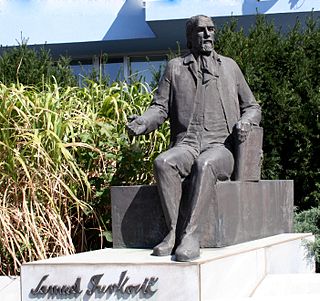 3
Samuel Jurkovič bol slovenský pedagóg, ľudovýchovný a kultúrny pracovník, organizátor družstevníctva.
3
Samuel Jurkovič bol slovenský pedagóg, ľudovýchovný a kultúrny pracovník, organizátor družstevníctva.
John the Apostle
 3
John the Apostle, also known as Saint John the Beloved and, in Eastern Orthodox Christianity, Saint John the Theologian, was one of the Twelve Apostles of Jesus according to the New Testament....
3
John the Apostle, also known as Saint John the Beloved and, in Eastern Orthodox Christianity, Saint John the Theologian, was one of the Twelve Apostles of Jesus according to the New Testament....
Martina of Rome
 3
Martina of Rome, a patron saint of Rome, was martyred in 226, according to some authorities, more probably in 228, under the pontificate of Pope Urban I, according to others. Her feast day is January...
3
Martina of Rome, a patron saint of Rome, was martyred in 226, according to some authorities, more probably in 228, under the pontificate of Pope Urban I, according to others. Her feast day is January...
Hana Ponická
 3
Hana Ponická was a Slovak writer and former anti-Communist dissident. She opposed the Communist government of the former Czechoslovakia.
3
Hana Ponická was a Slovak writer and former anti-Communist dissident. She opposed the Communist government of the former Czechoslovakia.
Gergely Czuczor
 3
Gergely Czuczor was a Hungarian Benedictine monk, a poet and linguist, member of the Hungarian Academy of Sciences. Baptized István he took Gergely (Gregory) as his religious name.
3
Gergely Czuczor was a Hungarian Benedictine monk, a poet and linguist, member of the Hungarian Academy of Sciences. Baptized István he took Gergely (Gregory) as his religious name.
Ján Levoslav Bella
 3
Ján Levoslav Bella was a Slovak composer, conductor and music teacher, who wrote in the spirit of the Nationalist Romantic movement of the 19th century.
3
Ján Levoslav Bella was a Slovak composer, conductor and music teacher, who wrote in the spirit of the Nationalist Romantic movement of the 19th century.
Wendelin of Trier
 3
Saint Wendelin of Trier was a hermit and abbot. Although not listed in the Roman Martyrology, his cultus is wide-spread in German-speaking areas. He is a patron of country folk and herdsmen. He is...
3
Saint Wendelin of Trier was a hermit and abbot. Although not listed in the Roman Martyrology, his cultus is wide-spread in German-speaking areas. He is a patron of country folk and herdsmen. He is...
John of Nepomuk
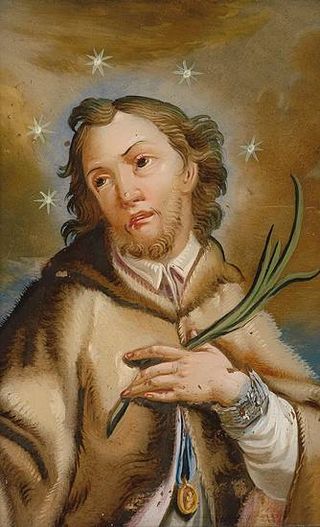 3
John of Nepomuk
was a saint of Bohemia who was drowned in the Vltava river at the behest of King Wenceslaus IV of Bohemia. Later accounts state that he was the confessor of the queen of Bohemia and...
3
John of Nepomuk
was a saint of Bohemia who was drowned in the Vltava river at the behest of King Wenceslaus IV of Bohemia. Later accounts state that he was the confessor of the queen of Bohemia and...
Józef Bem
 3
Józef Zachariasz Bem was a Polish engineer and general, an Ottoman pasha and a national hero of Poland and Hungary, and a figure intertwined with other European patriotic movements. Like Tadeusz...
3
Józef Zachariasz Bem was a Polish engineer and general, an Ottoman pasha and a national hero of Poland and Hungary, and a figure intertwined with other European patriotic movements. Like Tadeusz...
Julius Gábriš
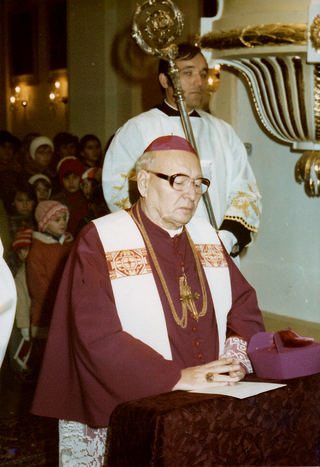 2
Július Gábriš was a Slovak Bishop, Apostolic Administrator of Archdiocese of Trnava during communist-controlled Czechoslovakia.
2
Július Gábriš was a Slovak Bishop, Apostolic Administrator of Archdiocese of Trnava during communist-controlled Czechoslovakia.
Vincent of Saragossa
 2
Vincent of Saragossa, the Protomartyr of Spain, was a deacon of the Church of Saragossa. He is the patron saint of Lisbon and Valencia. His feast day is 22 January in the Catholic Church and Anglican...
2
Vincent of Saragossa, the Protomartyr of Spain, was a deacon of the Church of Saragossa. He is the patron saint of Lisbon and Valencia. His feast day is 22 January in the Catholic Church and Anglican...
Master Paul of Levoča
 2
Master Paul of Levoča was a medieval carver and sculptor of the 15th and 16th century, active mostly in then Carpathian-German town of Levoča, Slovakia.
2
Master Paul of Levoča was a medieval carver and sculptor of the 15th and 16th century, active mostly in then Carpathian-German town of Levoča, Slovakia.
Juraj Palkovič (1769 – 1850)
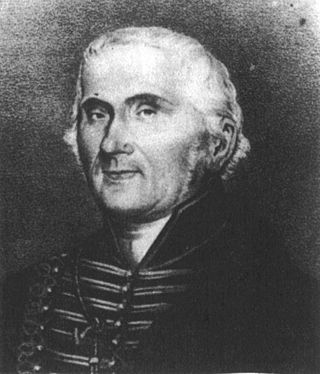 2
Juraj Palkovič bol slovenský básnik, novinár, prekladateľ, pedagóg, organizátor kultúrneho života, profesor bratislavského evanjelického lýcea a v rokoch 1832 – 1836 poslanec uhorského snemu za mesto...
2
Juraj Palkovič bol slovenský básnik, novinár, prekladateľ, pedagóg, organizátor kultúrneho života, profesor bratislavského evanjelického lýcea a v rokoch 1832 – 1836 poslanec uhorského snemu za mesto...
Daniel Krman
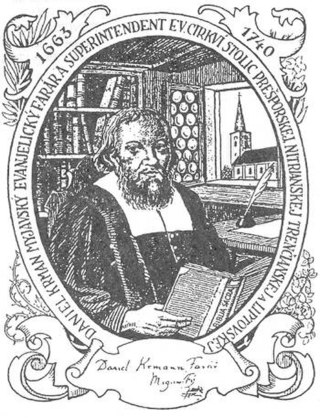 2
Daniel Krman ml. byl slovenský barokní spisovatel, překladatel, vydavatel a evangelický kněz.
2
Daniel Krman ml. byl slovenský barokní spisovatel, překladatel, vydavatel a evangelický kněz.
Albert Škarvan
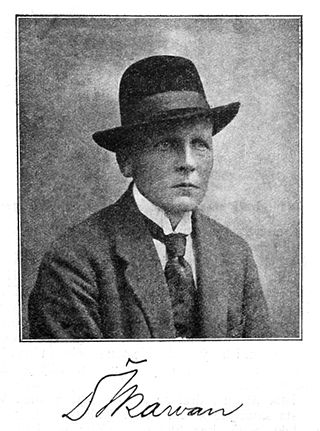 2
Albert Škarvan was a Slovak physician, writer, translator, and Esperantist.
2
Albert Škarvan was a Slovak physician, writer, translator, and Esperantist.
Ján Stanislav
 2
Ján Stanislav was a Slovak linguist and specialist in Slavic studies.
2
Ján Stanislav was a Slovak linguist and specialist in Slavic studies.
Viliam Pauliny-Tóth
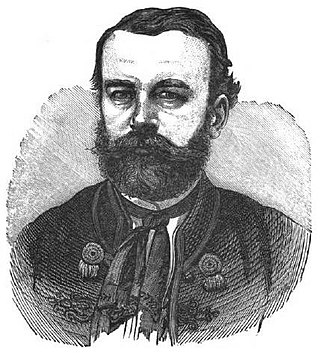 2
Viliam Pauliny-Tóth bol slovenský politik, básnik a publicista; nevlastný syn Michala Dionýza Doležala, nevlastný brat Ľudovíta Karola Doležala a Eduarda Alexandra Doležala; otec slovenského...
2
Viliam Pauliny-Tóth bol slovenský politik, básnik a publicista; nevlastný syn Michala Dionýza Doležala, nevlastný brat Ľudovíta Karola Doležala a Eduarda Alexandra Doležala; otec slovenského...
Bystrík
 2
Saint Bystrík was a martyr and the Bishop of the Diocese of Nitra.
2
Saint Bystrík was a martyr and the Bishop of the Diocese of Nitra.
Saint Rosalia
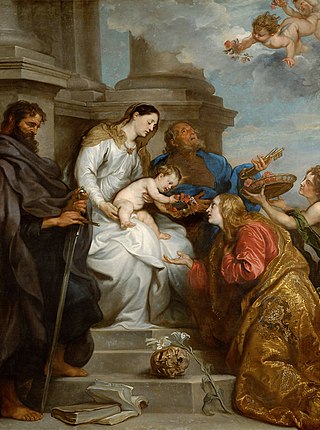 2
Rosalia, nicknamed la Santuzza, is the patron saint of Palermo in Italy, Camargo in Chihuahua, and three towns in Venezuela: El Hatillo, Zuata, and El Playón. She is especially important...
2
Rosalia, nicknamed la Santuzza, is the patron saint of Palermo in Italy, Camargo in Chihuahua, and three towns in Venezuela: El Hatillo, Zuata, and El Playón. She is especially important...
Pavel Kyrmezer
 2
Pavel Kyrmezer, byl spisovatel, dramatik, kněz slovenského původu. Během svého života se několikrát znepřátelil s Jednotou bratrskou[zdroj?], snažil se totiž stát hlavou nekatolické Moravy.[zdroj?]
2
Pavel Kyrmezer, byl spisovatel, dramatik, kněz slovenského původu. Během svého života se několikrát znepřátelil s Jednotou bratrskou[zdroj?], snažil se totiž stát hlavou nekatolické Moravy.[zdroj?]
Francis of Assisi
 2
Giovanni di Pietro di Bernardone, known as Francis of Assisi, was an Italian mystic, poet and Catholic friar who founded the religious order of the Franciscans. He was inspired to lead a Christian...
2
Giovanni di Pietro di Bernardone, known as Francis of Assisi, was an Italian mystic, poet and Catholic friar who founded the religious order of the Franciscans. He was inspired to lead a Christian...
Andrej Žarnov
 2
Andrej Žarnov, born František Šubík, was a Slovak Catholic modernist writer and physician.
2
Andrej Žarnov, born František Šubík, was a Slovak Catholic modernist writer and physician.
Vincent Hložník
 2
Vincent Hložník bol slovenský maliar, grafik, ilustrátor, sochár a pedagóg, predstaviteľ expresionizmu. Patrí medzi najvýznamnejších predstaviteľov slovenského výtvarného umenia, generácie umelcov...
2
Vincent Hložník bol slovenský maliar, grafik, ilustrátor, sochár a pedagóg, predstaviteľ expresionizmu. Patrí medzi najvýznamnejších predstaviteľov slovenského výtvarného umenia, generácie umelcov...
Dominik Tatarka
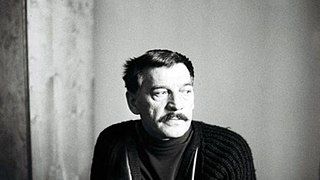 2
Dominik Tatarka was a Slovak writer famous for his 1956 satirical text The Demon of Consent condemning Stalinism.
2
Dominik Tatarka was a Slovak writer famous for his 1956 satirical text The Demon of Consent condemning Stalinism.
Karol Šmidke
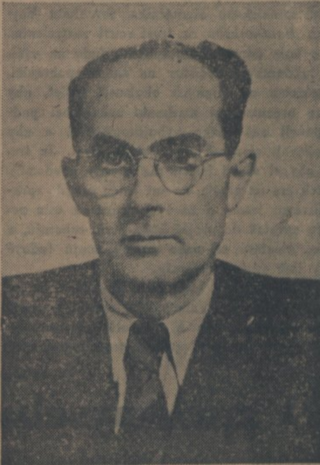 2
Karol Šmidke was a Slovak communist politician, member of the Communist Party of Czechoslovakia.
2
Karol Šmidke was a Slovak communist politician, member of the Communist Party of Czechoslovakia.
Martin Hattala
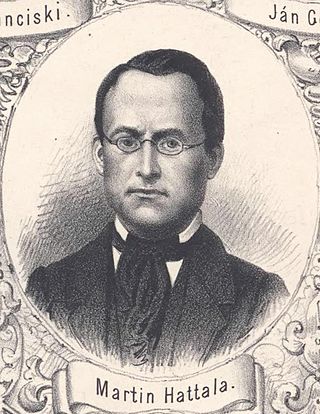 2
Martin Hattala was a Slovak pedagogue, Roman Catholic theologian and linguist. He is best known for his reform of the Štúr's Slovak language, so-called Hodža-Hattala reform, in which he introduced...
2
Martin Hattala was a Slovak pedagogue, Roman Catholic theologian and linguist. He is best known for his reform of the Štúr's Slovak language, so-called Hodža-Hattala reform, in which he introduced...
Sámuel Mikoviny
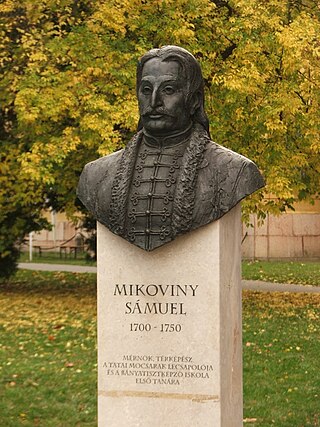 2
Sámuel Mikoviny was a mathematician, engineer, cartographer, and professor. He was a leading representative of science and technology in the 18th century Kingdom of Hungary and Habsburg monarchy.
2
Sámuel Mikoviny was a mathematician, engineer, cartographer, and professor. He was a leading representative of science and technology in the 18th century Kingdom of Hungary and Habsburg monarchy.
Alexander Matuška
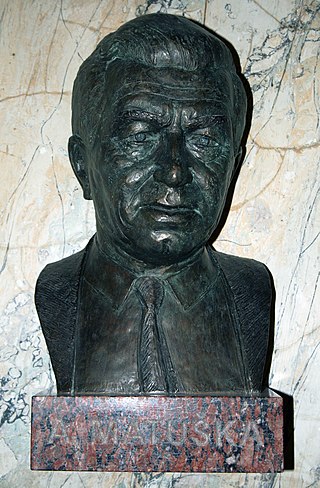 2
PhDr. Alexander Matuška, DrSc. bol slovenský literárny vedec a kritik. Pseudonym: Fedor Tomšič, Matúš Meščerjakov.
2
PhDr. Alexander Matuška, DrSc. bol slovenský literárny vedec a kritik. Pseudonym: Fedor Tomšič, Matúš Meščerjakov.
Juraj Jánošík
 2
Juraj Jánošík was a Slovak highwayman. Jánošík has been the main character of many Slovak novels, poems, and films. According to the legend, he robbed nobles and gave the loot to the poor, a deed...
2
Juraj Jánošík was a Slovak highwayman. Jánošík has been the main character of many Slovak novels, poems, and films. According to the legend, he robbed nobles and gave the loot to the poor, a deed...
Štefan Fidlík
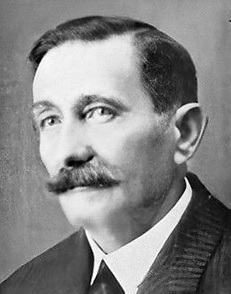 2
Štefan Fidlík bol slovenský murár a komunistický politik aktívny najmä v období medzivojnového Československa. Patril k popredným funkcionárom Komunistickej strany Československej v Trnave i na...
2
Štefan Fidlík bol slovenský murár a komunistický politik aktívny najmä v období medzivojnového Československa. Patril k popredným funkcionárom Komunistickej strany Československej v Trnave i na...
Ján Cikker
 2
Ján Cikker was a Slovak composer, a leading exponent of modern Slovak classical music. He was awarded the title National Artist in Slovakia, the Herder Prize (1966) and the IMC-UNESCO International...
2
Ján Cikker was a Slovak composer, a leading exponent of modern Slovak classical music. He was awarded the title National Artist in Slovakia, the Herder Prize (1966) and the IMC-UNESCO International...
Matthias Corvinus
 2
Matthias Corvinus was King of Hungary and Croatia from 1458 to 1490, as Matthias I. After conducting several military campaigns, he was elected King of Bohemia in 1469 and adopted the title Duke of...
2
Matthias Corvinus was King of Hungary and Croatia from 1458 to 1490, as Matthias I. After conducting several military campaigns, he was elected King of Bohemia in 1469 and adopted the title Duke of...
Ferdiš Kostka
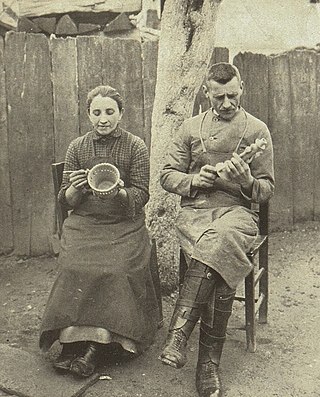 2
Ferdiš Kostka, krstený Ferdinand Kostka bol slovenský keramikár-džbánkar a figurálny keramikár. V roku 1946 mu bol udelený titul Národný umelec ako prvému umelcovi v histórii tohto ocenenia. V jeho...
2
Ferdiš Kostka, krstený Ferdinand Kostka bol slovenský keramikár-džbánkar a figurálny keramikár. V roku 1946 mu bol udelený titul Národný umelec ako prvému umelcovi v histórii tohto ocenenia. V jeho...
Bálint Balassi
 2
Baron Bálint Balassi de Kékkő et Gyarmat was a Hungarian Renaissance lyric poet. He wrote mostly in Hungarian, but was also proficient in eight more languages: Latin, Italian, German, Polish,...
2
Baron Bálint Balassi de Kékkő et Gyarmat was a Hungarian Renaissance lyric poet. He wrote mostly in Hungarian, but was also proficient in eight more languages: Latin, Italian, German, Polish,...
Juraj Sklenár
 2
Juraj Sklenár was a Slovak historian, pedagogue and Catholic priest.
2
Juraj Sklenár was a Slovak historian, pedagogue and Catholic priest.
Matej Hrebenda
 2
Matej Hrebenda bol slovenský národný buditeľ a ľudový spisovateľ.
2
Matej Hrebenda bol slovenský národný buditeľ a ľudový spisovateľ.
Mór Jókai
 2
Móricz Jókay of Ásva, known as Mór Jókai, was a Hungarian novelist, dramatist and revolutionary. Outside of Hungary, he was also known as Maurice Jókai or Maurus Jokai or Mauritius Jókai. He was a...
2
Móricz Jókay of Ásva, known as Mór Jókai, was a Hungarian novelist, dramatist and revolutionary. Outside of Hungary, he was also known as Maurice Jókai or Maurus Jokai or Mauritius Jókai. He was a...
Mihály Tompa
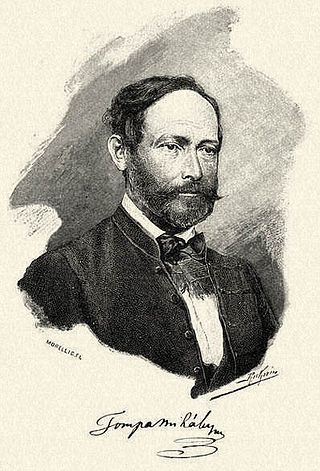 2
Mihály Tompa, was a Hungarian lyric poet, Calvinist minister and corresponding member of the Hungarian Academy of Sciences. Together with János Arany and Sándor Petőfi they formed the triumvirate of...
2
Mihály Tompa, was a Hungarian lyric poet, Calvinist minister and corresponding member of the Hungarian Academy of Sciences. Together with János Arany and Sándor Petőfi they formed the triumvirate of...
Bertalan Szemere
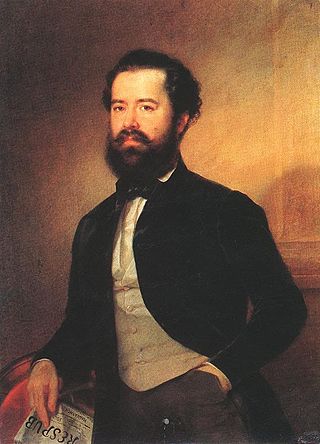 2
Bertalan Szemere was a Hungarian poet and nationalist who became the third Prime Minister of Hungary during the short period of the Hungarian Revolution of 1848 when Hungary was independent of rule...
2
Bertalan Szemere was a Hungarian poet and nationalist who became the third Prime Minister of Hungary during the short period of the Hungarian Revolution of 1848 when Hungary was independent of rule...
Zsófia Bosnyák
 2
Zsófia Bosnyák was a Hungarian noble and wife of Count Ferenc Wesselényi.
2
Zsófia Bosnyák was a Hungarian noble and wife of Count Ferenc Wesselényi.
Jan Hus
 2
Jan Hus, sometimes anglicized as John Hus or John Huss, and referred to in historical texts as Iohannes Hus or Johannes Huss, was a Czech theologian and philosopher who became a Church reformer and...
2
Jan Hus, sometimes anglicized as John Hus or John Huss, and referred to in historical texts as Iohannes Hus or Johannes Huss, was a Czech theologian and philosopher who became a Church reformer and...
Aurel Stodola
 2
Aurel Boleslav Stodola was a Slovak engineer, physicist, and inventor. He was a pioneer in the area of technical thermodynamics and its applications and published his book Die Dampfturbine in 1903....
2
Aurel Boleslav Stodola was a Slovak engineer, physicist, and inventor. He was a pioneer in the area of technical thermodynamics and its applications and published his book Die Dampfturbine in 1903....
Cecília Schelingová
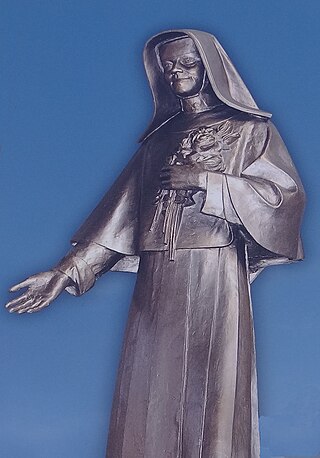 2
Cecília Schelingová, also known as Zdenka Schelingová, was a Slovak Roman Catholic religious sister of the Congregation of the Sisters of Charity of the Holy Cross and a victim of communist...
2
Cecília Schelingová, also known as Zdenka Schelingová, was a Slovak Roman Catholic religious sister of the Congregation of the Sisters of Charity of the Holy Cross and a victim of communist...
Dušan Makovický
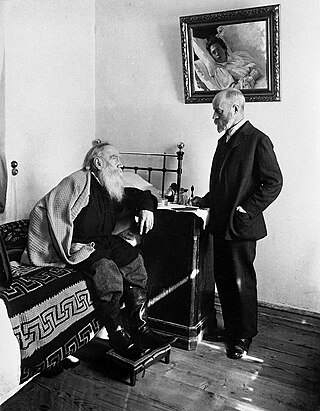 2
Dr. Dušan Makovický, bol slovenský lekár, publicista, spisovateľ a prekladateľ.
2
Dr. Dušan Makovický, bol slovenský lekár, publicista, spisovateľ a prekladateľ.
Svetozár Stračina
 2
Svetozár Stračina bol slovenský hudobný skladateľ, zberateľ ľudových piesní a editor ich nahrávok, spoluorganizátor folklórnych festivalov, autor piesní a úprav hudobného folklóru, orchestrálnych...
2
Svetozár Stračina bol slovenský hudobný skladateľ, zberateľ ľudových piesní a editor ich nahrávok, spoluorganizátor folklórnych festivalov, autor piesní a úprav hudobného folklóru, orchestrálnych...
Ladislaus I of Hungary
 2
Ladislaus I, also known as Saint Ladislas, was King of Hungary from 1077 and King of Croatia from 1091. He was the second son of King Béla I of Hungary and Richeza of Poland. After Béla's death in...
2
Ladislaus I, also known as Saint Ladislas, was King of Hungary from 1077 and King of Croatia from 1091. He was the second son of King Béla I of Hungary and Richeza of Poland. After Béla's death in...
Július Barč-Ivan
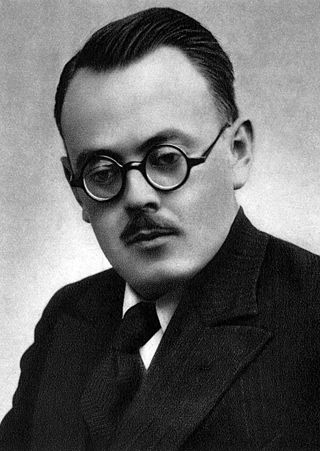 2
Július Barč-Ivan bol slovenský prozaik a dramatik.
2
Július Barč-Ivan bol slovenský prozaik a dramatik.
Ján Chalupka
 2
Ján Chalupka was a Slovak dramatist, playwright, publicist and Evangelical pastor.
2
Ján Chalupka was a Slovak dramatist, playwright, publicist and Evangelical pastor.
John Calvin
 2
John Calvin was a French theologian, pastor and reformer in Geneva during the Protestant Reformation. He was a principal figure in the development of the system of Christian theology later called...
2
John Calvin was a French theologian, pastor and reformer in Geneva during the Protestant Reformation. He was a principal figure in the development of the system of Christian theology later called...
Stephen I of Hungary
 2
Stephen I, also known as King Saint Stephen, was the last Grand Prince of the Hungarians between 997 and 1000 or 1001, and the first King of Hungary from 1000 or 1001, until his death in 1038. The...
2
Stephen I, also known as King Saint Stephen, was the last Grand Prince of the Hungarians between 997 and 1000 or 1001, and the first King of Hungary from 1000 or 1001, until his death in 1038. The...
Alexander Moyzes
 2
Alexander Moyzes was a Slovak neoromantic composer.
2
Alexander Moyzes was a Slovak neoromantic composer.
Basil Hopko
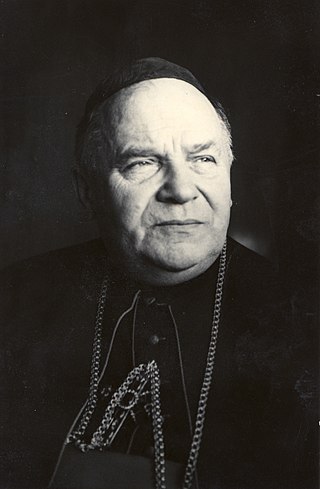 2
Basil or Vasiľ Hopko was an eparch (bishop) of the Slovak Greek Catholic Church. He was beatified by Pope John Paul II on 14 September 2003 for his martyrdom under Communist occupation.
2
Basil or Vasiľ Hopko was an eparch (bishop) of the Slovak Greek Catholic Church. He was beatified by Pope John Paul II on 14 September 2003 for his martyrdom under Communist occupation.
Ján Poničan
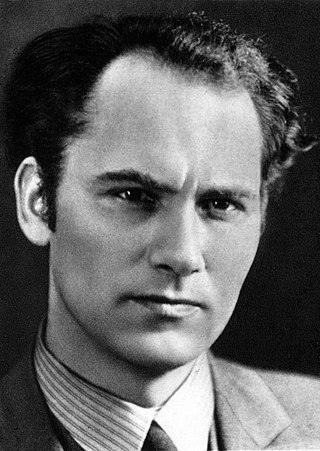 2
Ján Poničan was a Slovak poet, novelist, lawyer, playwright and translator.
2
Ján Poničan was a Slovak poet, novelist, lawyer, playwright and translator.
Mikuláš Galanda
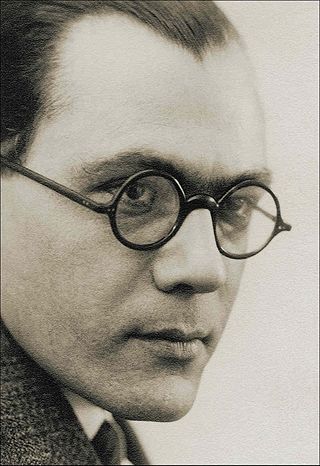 2
Mikuláš Galanda was a painter and illustrator who was one of the most important pioneers and propagators of Slovak modern art. He is buried in the National Cemetery in Martin.
2
Mikuláš Galanda was a painter and illustrator who was one of the most important pioneers and propagators of Slovak modern art. He is buried in the National Cemetery in Martin.
Mikuláš Schneider-Trnavský
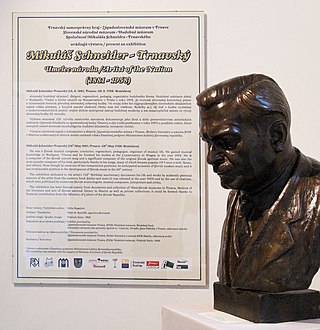 2
Mikuláš Schneider-Trnavský KSG was a Slovak composer, conductor and pedagogue. He was popular mostly because of his songs, some becoming traditional.
2
Mikuláš Schneider-Trnavský KSG was a Slovak composer, conductor and pedagogue. He was popular mostly because of his songs, some becoming traditional.
Štefan Pilárik
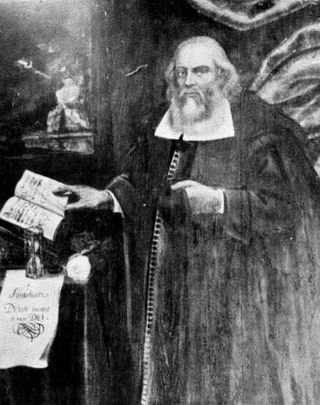 2
Štefan Pilárik starší byl teolog, spisovatel, básník, filozof a exulant. V letech 1674–1693 byl prvním pastorem v exulanty založené česko-německé obci Neu-Salza v Horní Lužici. Kromě češtiny mluvil...
2
Štefan Pilárik starší byl teolog, spisovatel, básník, filozof a exulant. V letech 1674–1693 byl prvním pastorem v exulanty založené česko-německé obci Neu-Salza v Horní Lužici. Kromě češtiny mluvil...